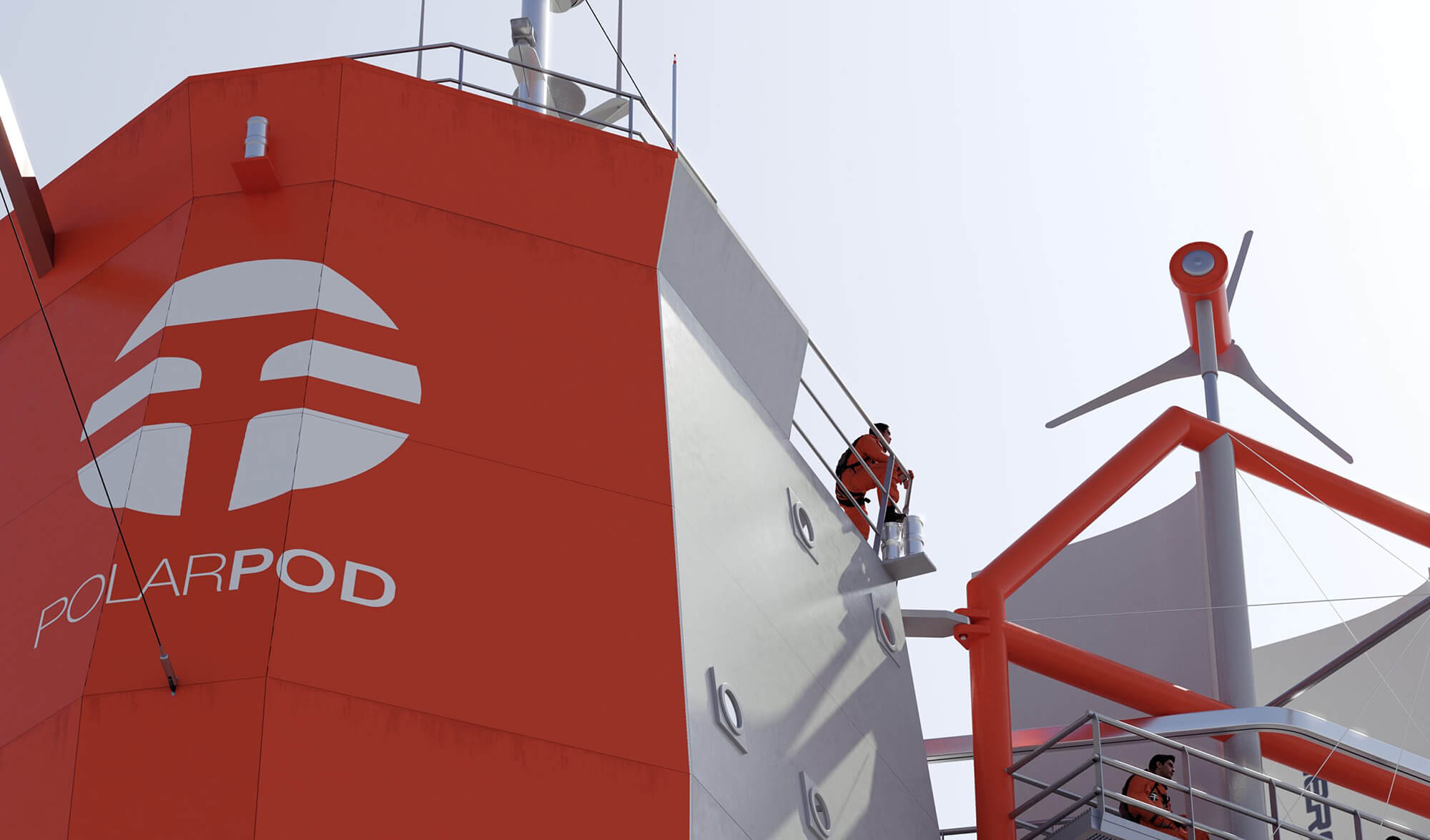
An exploration of the Southern Ocean, endorsed as an Action of the UN Decade of Ocean Science for Sustainable Development 2021-2030 (the ‘Ocean Decade’), will help to collect data and observations on this little-known ocean basin.
Led by explorer Jean-Louis Etienne*, the expedition will circumnavigate Antarctica twice between 2024 and 2026 on board the “zero emissions” oceanographic platform POLAR POD. The ship, powered by six wind turbines, is designed to be vertically driven by currents and winds, reaching a height of 100 metres. Construction is scheduled to begin in June 2022 and will be completed in December 2023, followed by several weeks of testing before departure in early 2024.
The French scientific project, coordinated by the National Centre for Scientific Research (Centre national de la recherche scientifique –CNRS) in partnership with the National Centre for Space Studies (Centre national d’études spatiales – CNES) and Ifremer, has the support of 43 institutions and universities from 12 countries. It is structured around four main axes:
- Atmosphere-ocean exchanges: the Southern Ocean is our planet’s main ocean carbon sink and a major climate regulator – its cold and rough waters are estimated to absorb 50% of the carbon dioxide absorbed by the entire ocean;
- Satellite remote sensing monitoring: field observations of weather conditions, sea states, wind, waves and ocean colour;
- Biodiversity inventory: marine flora and fauna, highly-sensitive hydrophones to capture the underwater soundscape;
- Anthropogenic impacts: assessment of pollution by aerosols, micro-plastics, pesticides, organic pollutants, heavy metals.
The POLAR POD expedition will also include an educational aspect with the development of a programme involving primary and secondary school teachers across France. Not only will this programme allow students to experience the mission and its findings throughout the academic years, it will also promote learning in natural, physical and mathematical sciences, as well as in languages, history, geography and the arts. The educational programme will launch at the beginning of the 2022 school year with the follow-up of the construction and preparation of the expedition.
Along with the other Actions endorsed as part of the Ocean Decade, this project will contribute to achieve the Decade’s vision of unlocking by 2030 “the science we need for the ocean we want”.
* A tireless advocate for the planet, Jean-Louis Etienne is a doctor, explorer and writer whose scientific and educational expeditions aim to raise awareness of the polar regions and explain the role these play in maintaining the balance of Earth’s climate. He was the first man to reach the North Pole solo in 1986, following a 63-day walk.
***
About the Ocean Decade:
The United Nations Decade of Ocean Science for Sustainable Development 2021-2030 (Ocean Decade) provides a convening framework for scientists, governments, academia, businesses, industry and civil society to develop the transformative solutions and partnerships needed to achieve a better understanding and protection of the ocean. These science-based advances will contribute to achieving the UN 2030 Agenda for Sustainable Development. The UN General Assembly mandated UNESCO’s Intergovernmental Oceanographic Commission (IOC) to coordinate the preparations and implementation of the Decade.
About POLAR POD:
AN EXPLORATION OF THE SOUTHERN OCEAN
Climate ∙ Marine biodiversity ∙ Space oceanography ∙ Contaminants
Driven by the circumpolar current like a satellite around Antarctica, the oceanographic platform POLAR POD will depart in 2024 for two round-the-world voyages in the Southern Ocean. The objective is to collect long-term data and observations on this ocean and make them accessible to researchers, oceanographers, climatologists and biologists worldwide. Over a three-year period, this expedition worthy of Jules Verne will provide the opportunity to lead a major international educational project in “real time” on life, earth and environmental sciences, in collaboration with the International Union for Conservation of Nature (IUCN).
For more information, please contact:
Elsa Peny Etienne (elsa@jeanlouisetienne.com)